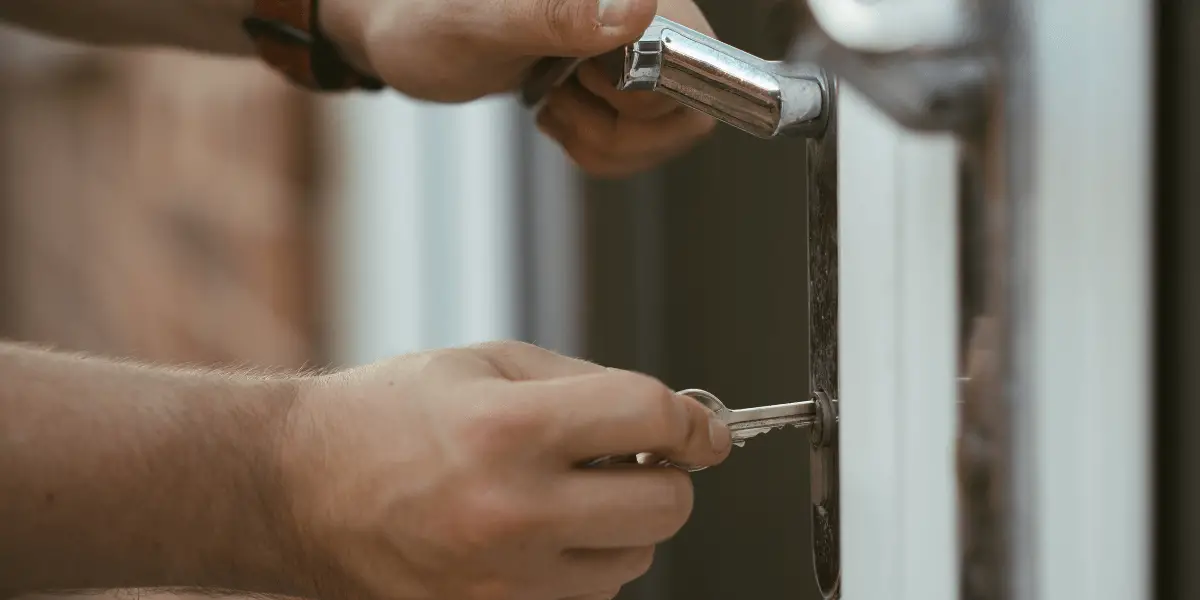
Is it illegal to lock your child in their room? The answer isn’t so simple. Some parents swear by it, but at the same time, some experts strongly advise against it.
Locking a toddler in their room at night after transitioning to a toddler bed might be tempting. It’s a last resort solution when a child is causing sleepless nights by refusing to stay in bed or simply refusing to be alone.
Unfortunately, the psychological effects and behavioral outcomes of locking a child in their room make the practice a terrible idea. “It’s not OK to lock kids in their room,” says Dr. Lynelle Schneeberg, a licensed clinical psychologist, Yale educator, and fellow of the American Academy of Sleep Medicine.
Here is Why.
The act of locking a child in their room tells them that they cannot manage themselves. If you find yourself doing this, think about the message you’re conveying to your child: “I can’t trust you to stay in bed on your own, so I am going to lock you in.”
Since your toddler will inevitably learn that you are not confident in their ability to stay put in their room, they will be more inclined to test the boundaries even harder during future sleep time battles.
To encourage them to maintain a healthy sleep routine, they must learn to stay in bed independently.
It is also important to remember that they will be completely alone when you leave your toddler in their room. If you are moving forward with the practice of locking your child in their room, it is important to check on them frequently to ensure that they are safe.
Otherwise, consider other methods to get them comfortable staying in bed independently.
What Is The Legal Definition Of "Locking A Child In Their Room"?
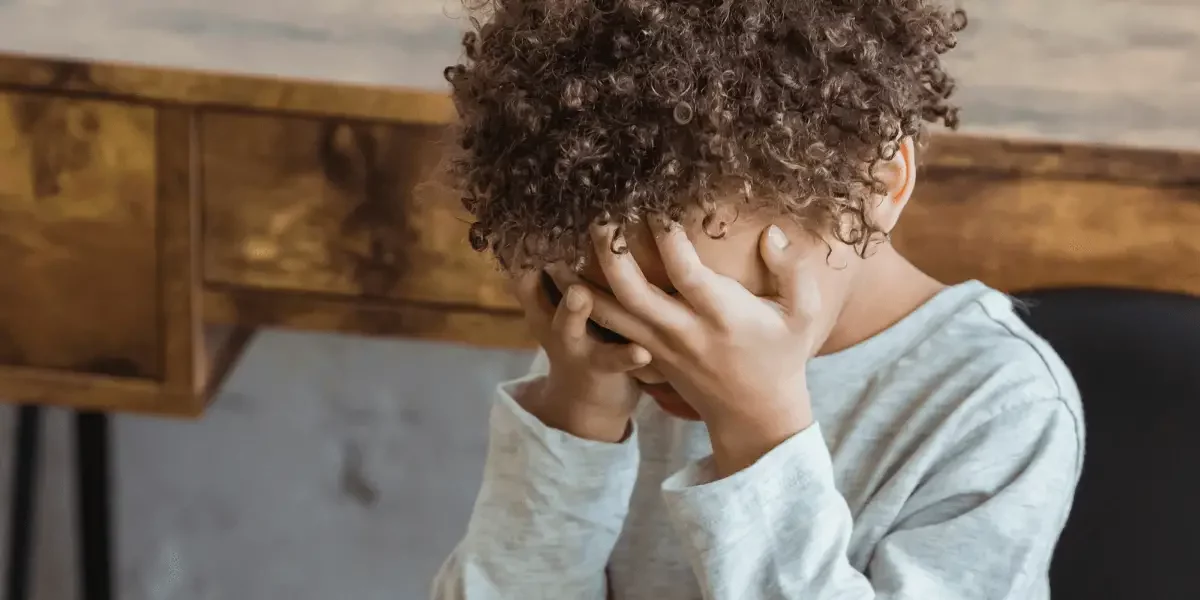
Should you shut your child’s bedroom door at night? Even though it is not ideal, locking a child in their room does not necessarily mean that you are breaking the law.
A 2014 study conducted by L. Song Richardson cites an example of a mother who claimed she was arrested for confining her son in his bedroom after he had repeatedly bailed out of bed at night and walked the neighborhood.
Locking a child’s bedroom door violates many fire codes and can be a pretty big red flag for child protective services.
Richardson (2014) defines the act of confining a child as “The act of restraining, isolating, imprisoning, or forcibly moving an individual.”
Even though Richardson’s legal definition is directed towards criminal law, it is still helpful in giving us insight into how the term “confinement” is viewed and used in the legal system.
So, legally, locking a child into their room isn’t considered “confining” them.
Now that we know that the act of locking a child in their room does not break any laws, let’s talk about why you would think to lock your child in their room and some better options to try instead.
One thing is obvious: You shouldn’t be locking your child in their room.
Parenting Tips to Get Your Child Sleep In Their Bed
Like any other form of punishment, it’s important to remember that this technique will teach them nothing about responsibility or taking care of themselves. It’s also not healthy for children mentally.
Here are some parenting practices that will get your child used to sleep in their bed without resorting to locking them inside their room.
Stay calm; it's just a phase
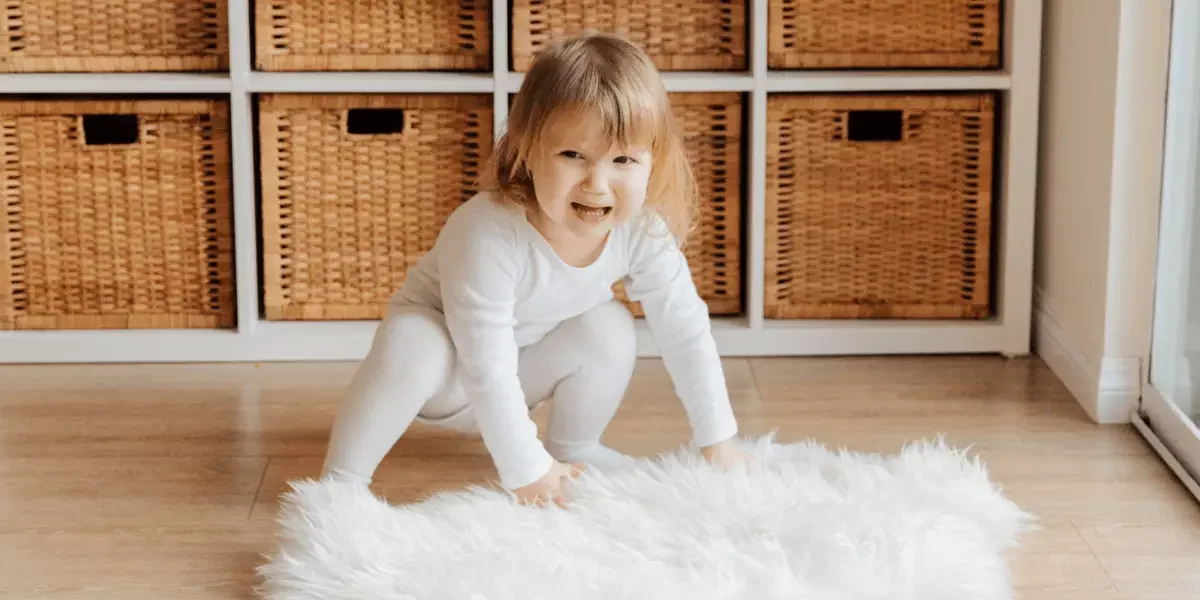
Parents will always be tempted by the desire to ensure their kids go down quietly at night and remain in bed for the entire night. But the truth is, children will not be kids forever.
It’s a phase that most children move through naturally with time and patience. It is not okay to lock kids just because they are children. They have the right to move freely, and they need their space.
Introduce a new bedtime routine
Just because your child transitions to a toddler bed doesn’t mean that they have mastered sleeping in their bed already, in fact, it is common for children to regress when they switch to a new bed.
This is why you must introduce your child to the concept of sleeping in their bed earlier when they were still using a crib or bassinet.
If your child recently transitioned to a toddler bed, you could ease them into the idea by using a transitional object, such as a lovey or stuffed animal.
Yes or No Challenge!
Think you know all about babies and their little quirks?

Question
Your answer:
Correct answer:
Your Answers
Encourage independence with the sleep fairy
Introducing the idea of a sleep fairy can help motivate your child to stay in bed. Children naturally want to please their parents and will do anything for attention. If you let them know that the sleep fairy will come if they stay in bed all night, they are more likely to do so.
Encourage your child to become independent every night by having them put their toys away before bedtime. This way, you know what to expect when you check on them after lights out.
Use a nightlight
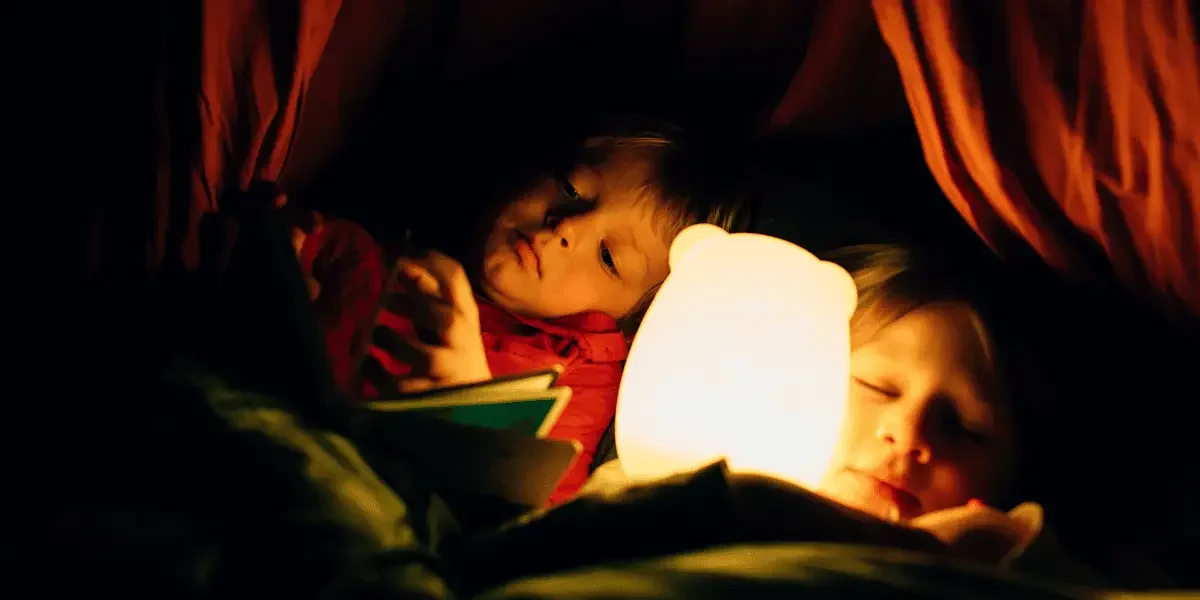
Remember, you should always check on your little one periodically throughout the night. This is especially important if they’re moved to a big kid bed like a toddler bed without a rail.
To make this transition easier for both of you, it can be helpful to install a nightlight in their room and allow them to keep a small blanket or stuffed animal in their bed.
A good sleep ritual can help toddlers learn to soothe themselves to sleep, and that is a better alternative than door locks, gates, monitors, or alarms.
Set a calm and positive tone
You might be tempted to try and scare your child into staying in their bed by putting a boogie man in their room or putting up scary posters. However, the truth is that this simply terrorizes your child and does nothing to help them sleep in their bed.
Instead, set a calm and positive tone for bedtime by using soothing music or reading a book.
What are the risks associated with locking children in their rooms?
Locking children in their rooms teaches them nothing about taking care of themselves and can damage their mental health. Instead, you should teach your child self-sufficiency by encouraging independence when putting toys away before bedtime or having them put on their pajamas when they get home from school.
Locking children in their rooms can also be problematic when it comes to disasters or accidents like fire.
The Consequences of Locking Children In Their Rooms
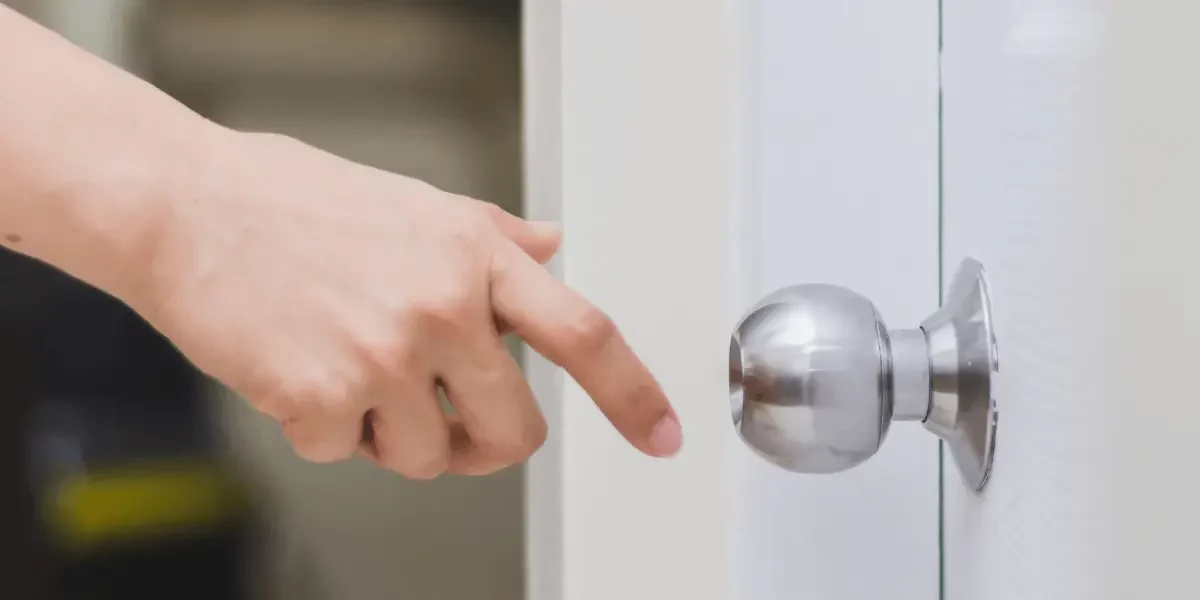
The consequences of not following the law on locking children in their rooms can include:
- Being charged with a crime and going to jail/receiving a fine. It’s also a red flag for child protective services.
- Your child may feel frightened, isolated, and disempowered. They will not learn responsibility or that actions have consequences.
- Your child may develop anxiety around sleep due to being locked in their room, could become hypervigilant to escape, or have nightmares.
- Your child may develop physical ailments from being isolated and unable to move freely around the room, such as muscle tightness, poor circulation, and respiratory problems.
- Punishing children with physical force is illegal in most countries. It teaches children that the only way to solve a problem is violence.
According to criminal lawyer and child rights activist Rebecca van der Spek, it is a mistake to lock up children. There are several ways of achieving what parents want without infringing on the child’s rights.
Parents should not be tempted to rely on gadgets such as sensor alarms and baby monitors because they can make the situation worse.
Safer Options to Discipline Children
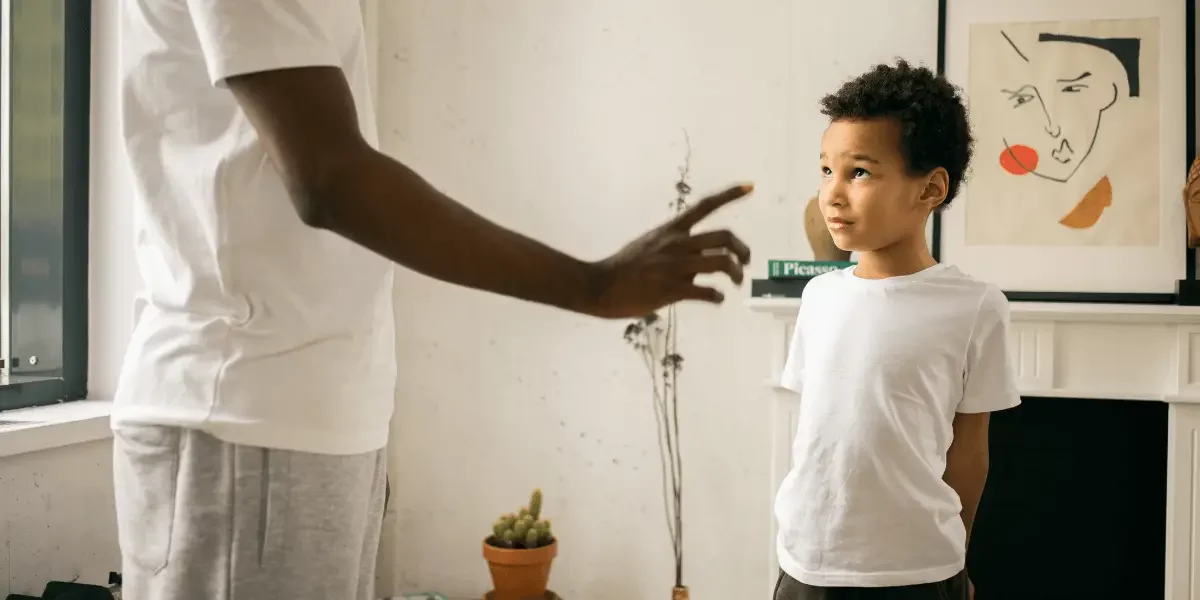
For parents who are having difficulties disciplining their children, it is essential to remember that punishment must always come after a child has been given a chance to correct the behavior.
Here’s The Hard Quiz
Now, try the hard quiz.

Question
Your answer:
Correct answer:
Your Answers
For example, if your child disobeys you and gets into their sibling’s room without asking first, he should first be required to return the toy and apologize before being punished.
- Keep a positive and calm tone during the day; this will make for a smooth bedtime routine.
- Avoid long periods of punishment or isolation, as this can create feelings of anxiety and sadness in your child. In addition to being illegal, according to most child protection legislation, it teaches children that violence is the only way to solve problems.
- Create a chart to show your child her daily routine, including homework time, playtime, and clean-up time.
- Give praise when your child behaves well or does something to help around the house. This will teach your child to get what she wants by behaving well.
- Do not expect too much of your child. Even young children can become stressed and anxious when forced to take on too much responsibility too soon. By setting realistic limits for their age and abilities, children will be happier and less likely to act out.
- Do not force your child to say sorry if he does not mean it. If a child feels pressured to apologize, he will not learn the real lesson behind the action.
- If using timeouts, do not leave your child there indefinitely. Set a timer and keep to it to not prolong their isolation needlessly. Once the time ends, let them know they can come out if they want to, but it is their choice. Your child will feel better knowing they have a say when the time out ends and can take some comfort from this control over themselves.
Conclusion
Locking children in their rooms can have negative consequences on their physical and emotional health. There are better ways to discipline children that do not involve punishment or isolation.
Parenting is a difficult task, but it is important to remember that all children are different and what works for one child may not work for another.
Try different methods until you find one that is effective for your child and stick to it. Praise your child when they behave well and give them a sense of control over their own lives.
The next time your kid misbehaves or doesn’t like to stay in their room, remember to ask yourself, “Is it illegal to lock your child in their room?” and know the right answer to it.


Leave a Reply